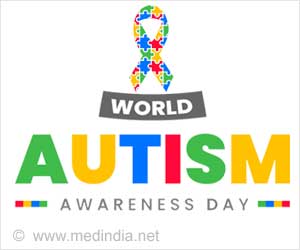
Autism is the world’s third most common developmental disability, a neurological illness that usually manifests by the age of three.
While several studies blame environmental and genetic reasons behind autism, Dr. Madhukar Bhardwaj, Senior Consultant, Neurology, Aakash Healthcare, Dwarka stated that “having an autistic immediate family member, mutations in the genes, fragile X syndrome and other genetic disorders, low birth weight, metabolic imbalances, exposure to heavy metals and environmental toxins, viral infections in pregnant mothers are some of the other suspected risks of this disease”.
Bhardwaj said that although detecting autism in children under the age of one year is challenging, a diagnosis can be made by the age of two if the signs are appropriately diagnosed.
“A quarter of children with autism spectrum condition will have a regression in language or social abilities, most commonly between the ages of 18 and 24 months,” he noted.
Lack of awareness about the early signs such as exhibiting abnormal behaviours, often stigmatises the disorder. In their growing years, such children are often subjected to bullying, filthy remarks, and humiliation. The fact that the illness is frequently misdiagnosed as mental retardation or even schizophrenia contributes to the delay in diagnosis.
A landmark study from the universities of Bath, Cardiff, Manchester, and King’s College London found that fundamental psychological systems are not impaired in autistic people as once thought.
READ RELATED: 21 cancer-stricken children from Ukraine begin life-saving NHS therapy
In the largest study of its kind, involving over 1,000 people, the researchers tested the link between autism and ‘quick’ intuitive and ‘slow’ rational thinking.
In three experiments, they analysed the link between autistic personality traits and thinking style. In the fourth, they compared 200 autistic and over 200 non-autistic people. Overall, their results showed that autistic people think as quickly and as rationally as non-autistic people.
Even as there is yet no cure for this disease, “genetic testing for people with ASD is now being requested by developmental paediatricians, neurologists, psychiatrists, and other specialists, as well as primary care doctors”, said Dr Gauri Agarwal, Founder & Director, Genestrings Diagnostics and Seeds of Innocence.
“ASD is a complex condition for which genomic testing can give patients, families, and healthcare providers valuable clinical information. Whole Genome Sequencing will go hand-in-hand with microarrays as the standard of care genomic test for ASD in the not-too-distant future,” she added.
Source: IANS
Source:








